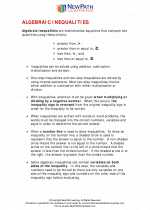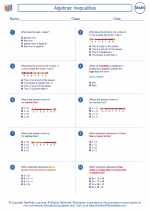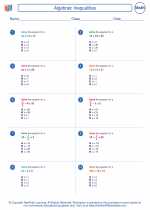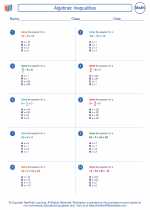Repetition in Mathematics
Repetition in mathematics refers to the process of repeating a mathematical operation or process multiple times. It is a fundamental concept that is used in various mathematical operations, such as addition, multiplication, and exponentiation. Understanding the concept of repetition is important for solving problems involving sequences, patterns, and series.
Types of Repetition
In mathematics, there are several ways in which repetition is expressed:
- Repeated Addition: This involves adding the same number multiple times. For example, 3 + 3 + 3 + 3 can be expressed as 4 * 3, where 4 is the number of repetitions and 3 is the number being added.
- Repeated Multiplication: This involves multiplying the same number multiple times. For example, 2 * 2 * 2 * 2 can be expressed as 2^4, where 4 is the number of repetitions and 2 is the base number being multiplied.
- Repeating Decimals: In decimal numbers, repetition can occur when a digit or group of digits repeats infinitely. For example, 0.3333... represents the repeating decimal 0.3.
Applications of Repetition
The concept of repetition is widely used in various mathematical problems and real-world applications. Some of the common applications include:
- Sequences and Series: Repetition is essential in understanding and generating arithmetic and geometric sequences, as well as calculating the sums of series.
- Exponential Growth and Decay: Repetition is a key component in understanding exponential functions and their applications in population growth, compound interest, and radioactive decay.
- Pattern Recognition: Recognizing and analyzing repeating patterns is a fundamental skill in mathematics, and it often involves identifying repetitive sequences of numbers or shapes.
Study Guide
Here are some important concepts and topics to focus on when studying repetition in mathematics:
- Understanding the difference between repeated addition and repeated multiplication.
- Identifying and representing patterns and sequences involving repetition.
- Practicing solving problems involving repeating decimals and fractions.
- Exploring real-world applications of exponential growth and decay.
- Mastering the properties and rules of exponents in repeated multiplication.
By understanding the concept of repetition and its applications, you will be well-equipped to tackle various mathematical problems and develop a deeper understanding of mathematical patterns and processes.
.◂Math Worksheets and Study Guides Seventh Grade. Algebraic Inequalities

 Worksheet/Answer key
Worksheet/Answer key
 Worksheet/Answer key
Worksheet/Answer key
 Worksheet/Answer key
Worksheet/Answer key
